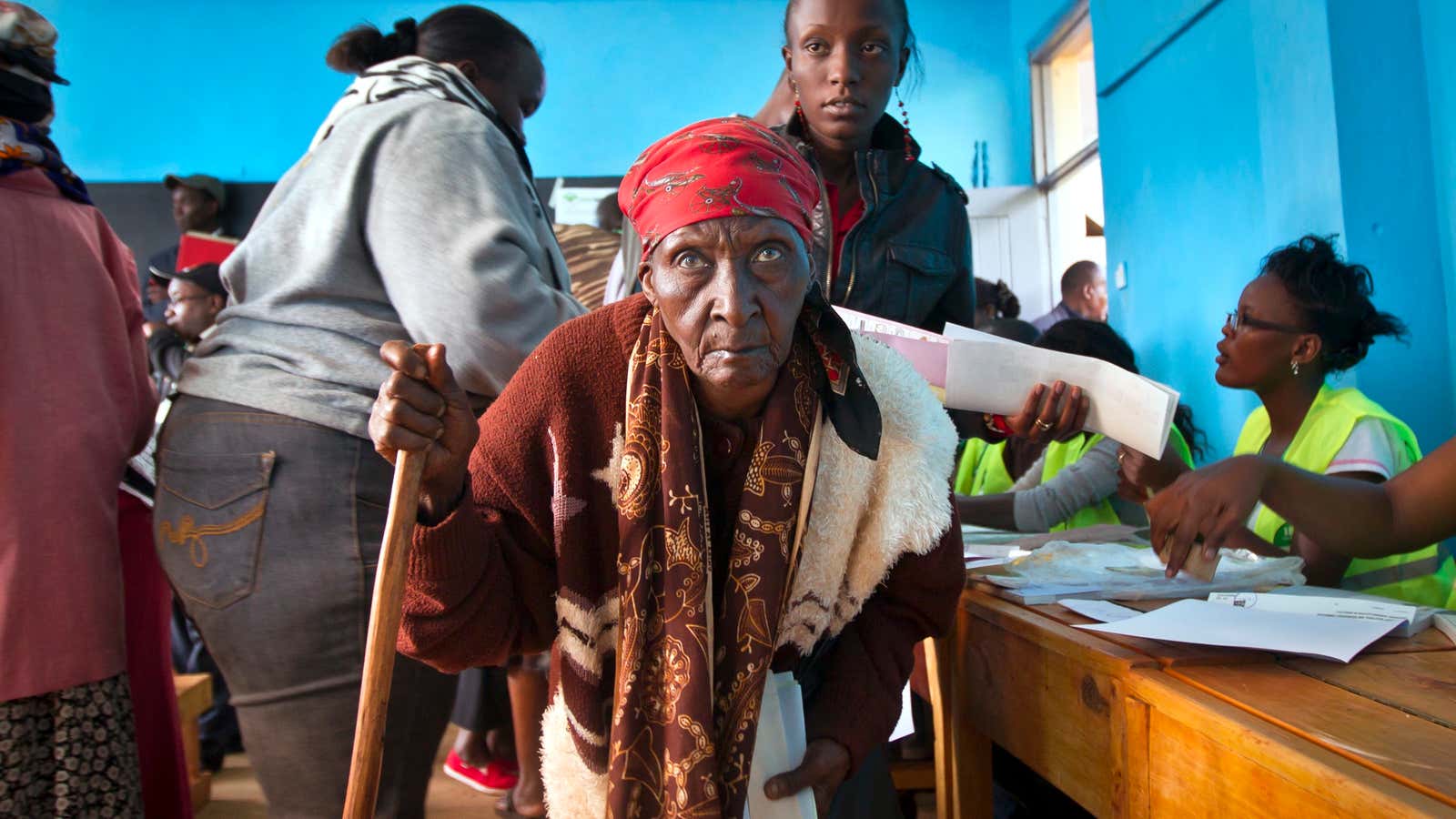Since before dawn, millions of Kenyans began queueing at their polling places in order to vote in the country’s first national election since the country adopted a new constitution. It appears that many will wait until after dusk in order to cast their vote.
Given the violence that marred the country’s last national election in 2007, killing more than 1,000, all eyes are on the polling places where it’s most likely to break out. There was an incident on the coast that happened before polls opened and a second where details remain sketchy. But this time around the elections appear to be otherwise peaceful.
All of which is good news for the economic powerhouse of East Africa.
Holding peaceful elections is clearly a point of pride for many Kenyans, who are determined not to let foreign journalists “get to file the story they came for.” Many are angry at CNN’s pre-election coverage, which focused on the potential for violence.
With all the foreign media attention on these elections, they are for many a referendum on the future of Kenya. The question is: Will Kenya regain its status as the most stable and economically progressive country in East Africa? Here’s Sven Richter, head of Africa and frontier markets at Renaissance Asset Managers, in advance of the elections:
These [election] risks, however, do not change our view of the fundamental investment case for the country – a fast-growing domestic economy driven by an expanding middle class and positive demographics (the working-age group accounts for half of the country’s population).
